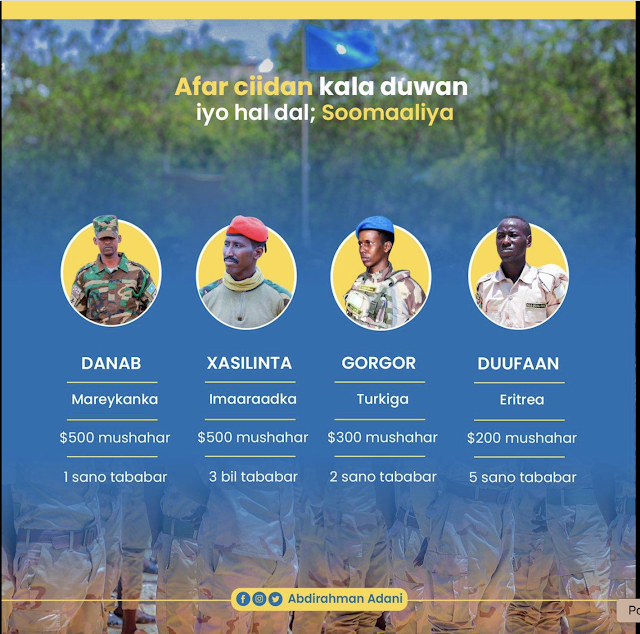The effectiveness of a military force as an instrument of national defense and security relies not only on its tactical prowess and hardware but also on its coherence as a unified entity. This unity stems from a shared sense of purpose and allegiance to a common national identity. However, when a military institution is plagued by tribal or factional interests, the integrity and effectiveness of the army can be compromised. This article delves into the nature of a federal army within the context of Somalia's ongoing internal conflicts and explores whether it functions as a national army or a tribal one.
In an ideal scenario, a national army ideally represents a country's entire populace, safeguarding the national interest above subgroup or regional preferences. It embodies a sense of unity and common purpose that transcends ethnic, regional, or tribal affiliations. Unfortunately, in the case of Somalia, the federal army's ability to operate as a national force is hindered by the pervasiveness of tribal influences and inter-clan conflicts.
The Somali National Army (SNA) faces numerous challenges that impede its functioning as a unified national force. Tribal loyalty often surpasses national allegiance, resulting in recurring clashes between SNA forces and regional paramilitary groups. A notable incident occurred on June 13, 2023, in the southern port town of Barawe, which serves as the capital city of the Southwest Administration. During a fierce gun battle between the SNA and regional forces, ten individuals were killed, and several others sustained injuries. This confrontation highlights the deep-seated divisions within the army and the wider country.
Rather than presenting a united front against common external threats, such as the Al-Shabaab terrorist group, the SNA's focus is frequently diverted towards internal clan disputes. The prioritization of tribal interests over national security exacerbates the fragmentation of the Somali military. This factionalized environment emboldens terrorist groups and hampers counterterrorism operations.
Somali society, deeply rooted in a clan-based social structure, extends this tribal mentality to the military. The "us versus them" perspective fostered by this mindset undermines attempts to establish a unified, national army. Consequently, the SNA often functions more as a tribal army, with soldiers' loyalties leaning towards their clans rather than the central government. This situation disrupts military hierarchy, discipline, and overall effectiveness.
The tribal mentality within the SNA and the prevalence of inter-clan conflicts raise existential questions about the nature of the Somali military. Is it a federal army, a national army, or a tribal army? Given the tribal affiliations within the SNA and the resulting conflicts, it is presently more akin to a tribal army than a national one.
Conclusively,, the case of Somalia underscores the significance of a shared national identity and a unified sense of purpose in the functioning of a federal army. Transforming the Somali National Army into an effective national force requires more than mere physical resources. It necessitates fostering a national identity that transcends tribal loyalties and cultivating a unified purpose that prioritizes national security over clan-based interests. As long as the SNA remains a tribal army, Somalia's national security will remain fragmented, impeding the country's progress and its ability to effectively combat terrorism.


No comments:
Post a Comment